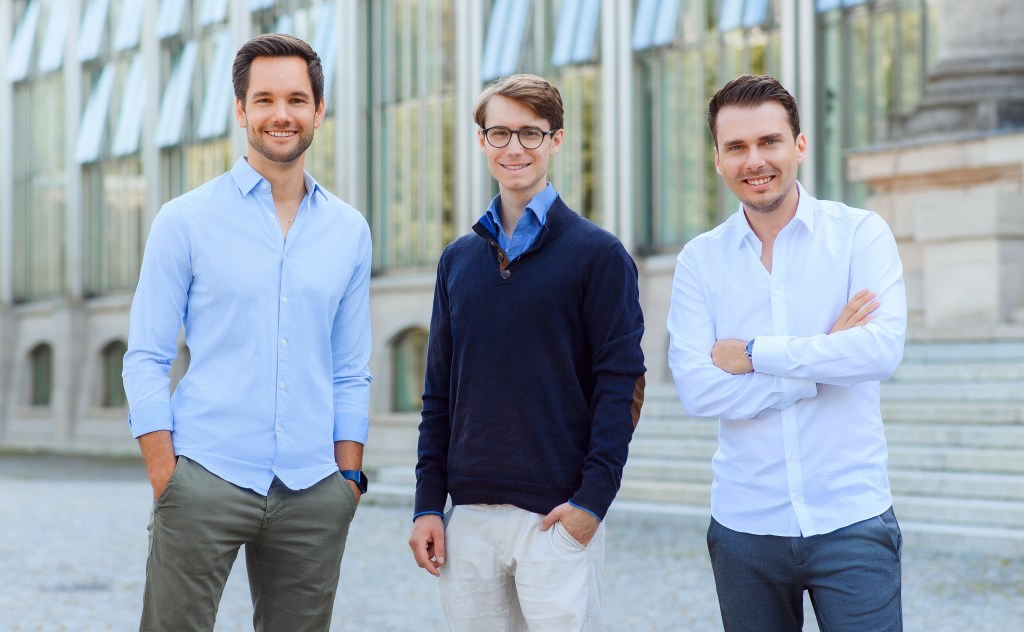Partnering with Avelios: Healthcare for the Modern Age
Christian, Nicolas, Sebastian and their team are transforming hospital information systems—and improving the lives of doctors and patients alike.

We’ve all been there. You book a medical appointment and fill out your forms online—but when you arrive, you’re handed a clipboard full of the same questions to answer all over again. And behind the scenes, doctors and staff are also spending valuable time copying and pasting, making their demanding jobs even harder.
It happens because the operating system most hospitals run on was developed in the ‘90s, if not earlier. Data is unstructured; interoperability is non-existent; UIs are anything but user-friendly. The consequences, in terms of both inefficiencies and patient outcomes, are severe. Yet despite decades of technological development, hospital information systems (“HIS”) remain undisrupted. Why? They are incredibly difficult to build.
The typical HIS is a complex and mission-critical web of modules, and the hospitals that run them are highly regulated and understandably risk-averse—which can make launching an HIS company just as grueling as launching the product itself. New companies in this space often revert to simple point solutions that try to integrate with a legacy HIS, instead of the ground-up overhaul healthcare clearly needs.
The team at Munich-based Avelios has seen the challenges up close. During the height of COVID, Dr. Sebastian Krammer spent valuable time counting patients by hand, then reported the results to authorities via fax. And when he and Nicolas Jakob, a software engineer and deep learning expert, tried to expand their promising research on classifying skin conditions with AI, they quickly discovered hospitals’ antiquated systems couldn’t provide the data they needed.
So they teamed up with Christian Albrecht, a McKinsey alum and previous co-founder with Nicolas, to solve the problem. And instead of “treating the symptoms” by building on top of outdated legacy software, they decided to take the hard path of “treating the cause” and tackle the problem at its core, by building a completely new HIS.
Over the last couple of years, Avelios built a full hospital information system, including documentation (e.g., EHR, medication, operating room management); administration (e.g., billing, staff, clinic management); patient portals; AI solutions, and more. They took a modular approach so they could land in hospitals with one offering before expanding to the full operating system. But then multiple sea changes in the market accelerated their plans:
- One of the leading HIS providers announced they would sunset their product in 2027, creating an urgent need for more than 1,000 hospitals to replace their systems.
- Regulators in Germany and elsewhere responded to problems revealed by COVID-19 with both fines for failing to digitize and funding for modernization. (Germany’s Hospital Future Act, for example, dedicates €4.3B to this.)
- Demand for AI exploded, putting a spotlight on the difficulties of accessing data and integrating with legacy hospital systems—which are exactly the challenges that Avelios was designed to solve.
Avelios, in other words, is the right team, with the right product, at the right time. As a result, they have already won several of Germany’s largest public and private hospitals.
When we met the team, we were deeply impressed by their ambition, the depth and breadth of the product, the customers they’d won and their revenue growth—and more importantly, that they achieved all of this with just pre-seed funding (!).
Fortunately for us, Christian, Nicolas, and Sebastian agreed to a partnership, and we are proud to lead this Series A round as they and their fast-growing team work toward their goal of revolutionizing healthcare.
In an Avelios-powered future, doctors and staff will have the system of record and AI tools they need to make better, more informed decisions. They’ll be able to focus on the reason they got into medicine in the first place—helping people. And their patients will get not only a seamless experience but the best possible care.

